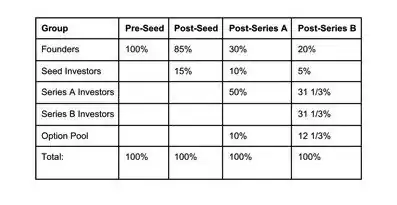First, read the answers, including mine, at Why is stock dilution legal? That question is why stock dilution is not inherently always a bad deal.
Now, this question is asking what the circumstances are that would make stock dilution a good deal.
Using the example from my answer to the other question, let’s say you’ve got a 10% stake in a company that is not publicly traded. Because it is not publicly traded, it is difficult to determine a value for your shares, but let’s say that you believe the company to be worth $100,000 currently, meaning your stake is worth $10,000. Now let’s say that a new investor comes in, believes in the company, and want to make a $200,000 investment in the company for a 50% stake. This is a much higher value on the company then you were thinking. When the sale is done, the company is richer; the same company that you thought was valued at $100,000 now has $200,000 in new cash, so you now value the company at $300,000 (at least). You now only hold a 5% stake, but your share is now worth $15,000.
Essentially, stock dilution is a way to sell part of the company as it grows. Whether or not it is a good deal for existing investors depends on both aspects: “Would the added cash be good for the company and help it grow?” and “Am I getting a good price on this sale?”
